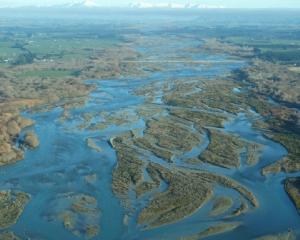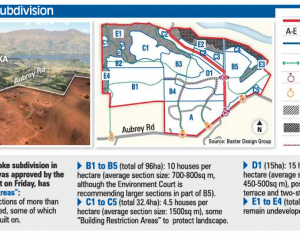The parties involved in the debate will go to mediation, probably in February, in an attempt to reduce the number of issues for the Environment Court to decide.
The New Zealand and Otago Fish and Game councils sought an amendment to the water conservation order (WCO) on the river to ban its damming or diversion. The application drew 248 submissions and was heard by a special tribunal appointed by the Ministry for the Environment.
The tribunal's recommendation, announced in August, was the WCO should be changed to prohibit damming and diversion, to protect a native fish, Gollum galaxiid, a species found only in the Nevis River. The tribunal's report was challenged by three submitters, who have taken the matter to the Environment Court.
One of those submitters is Pioneer Generation, a power company with plans for a hydro-electricity development on the river. The other submitters were the Fish and Game councils and Whitewater New Zealand, a recreational kayaking group.
The Environment Court will now hold an inquiry into the matter and provide a report and recommendations to Minister for the Environment Nick Smith.
All 248 submitters were advised of a judicial conference in the Environment Court in Queenstown yesterday to discuss the next stage of proceedings.
Judge Jon Jackson started the conference by saying he was national president of the Royal Forest and Bird Protection Society 14 years ago, resigning in 1996.
"If anyone feels prejudiced by my involvement, speak up."
None of the lawyers or submitters present said they had any objection to him continuing with the matter.
Three branches of the society are among the submitters on the WCO.
Lawyer Kerry Smith, appearing for Pioneer and Contact Energy, said mediation might be useful, although the parties seemed "diametrically opposed".
The hearing so far had been an "extremely expensive exercise for all parties" and the cost of preparing further evidence would be substantial.
He hoped mediation could reduce the number of issues for the Environment Court to decide.
Judge Jackson said he would set aside three days for mediation.
Submitter John Douglas, of Alexandra, asked if the matters to be discussed were confined to the issues raised in the three appeals. He wanted to know if the flora and fauna could be discussed.
Lawyer Maree Baker, who represented the Fish and Game councils and 30 other submitters, said she had no problem with that, but Mr Smith took an opposing view.
"In my view, we are confined to what is raised by the submissions. The appeal period has come and gone and any inquiry has to be into the issues raised in this and nothing else," he said.
Geraldine Baumann, lawyer for the New Zealand Historic Places Trust, said that organisation was in a similar position to Mr Douglas, and wanted to discuss heritage values.
Judge Jackson suggested they consider making a late submission, together with an application for an extension of time in which to appeal.






